Vasco, and Pedro and Pedro have started ISTO. in 2017 in Lisbon, because they have been searching for men clothes, with a very good quality and an affordable price. Their search stayed unsuccessful, that was when they decided to solve that by themselves. ISTO. stands for I – Independence, S – Superb, T – Transparent and O for Organic. Nowadays the brand offers women and men classic minimalistic basic clothes in good quality, organic and to a good price. They reveal the true costs (price) of their clothes at every step of the value chain, which is something unique in the fashion industry.
If you have been following us on Insta, you will have probably noticed the brand. We are following them for a while now. Time to shed a bit more light on them. For the founders, independence is quite important for their brand – independent from industry constraints, from an investor’s mindset. Everything they are doing, is because they want to do so. They are aiming at achieving good quality – superb. That is why they have just one collection, made very well. They want to offer, the best everyday essentials. Transparency is the key – ISTO. reveals how much they have paid in the production of their clothes for each and every component from material to production. Therefore, we get to know that for an organic shirt the traditional retailer price would be 125 Euro, whereby the true costs were about 29 Euro. The brands sell these t-shirts for 69 Euro. We are learning that the organic fabrics are most expensive, followed by labor costs, and packaging/logistics.
ISTO. works with factories with high standards of social responsibility and work policies. The suppliers are GOTS certificated. For the founders, it was important to offer organic clothes, due to quality reasons and impact on the environment. One organic cotton t-shirt, compared to a normal non-organic one, saves 436 liters of water and has no toxic chemicals inherent, affecting soil, people and the whole ecosystem. What I like that ISTO. chooses to work with local manufacturers in the north of Portugal. The linen also sourced there. The organic cotton comes from Turkey. Working locally, ensures that the manufactures adhered to high working standards. Further, it is easier to control that and work together. The founders achieved to control the whole supply chain, to offer very good quality to a fair price.
It is quite interesting what happens in our minds, learning about the costs. Some might think, the margin still is quite high, isn’t it? Of course, the founders have to earn money to stay at the market. They mostly sell online, which keeps money in the company and price low. But, they also have beautiful stores in Lisbon and a team, they are working with. Things, which have their costs. We think, ISTO. could go one step further calculating the costs, for example taking the carbon footprint into account, which also can be seen as “costs” and enlighten life cycle costing. It also would be interesting to learn about their real impact. Besides the clothes, ISTO. offers a magazine showing best practices player for sustainability in Portugal. They are helping to grow the mindset in a holistic approach. We will follow their journey.
photo credit by ISTO.


